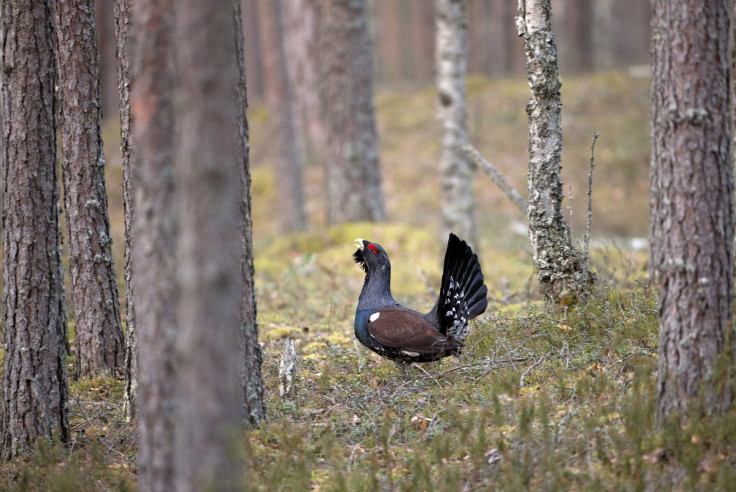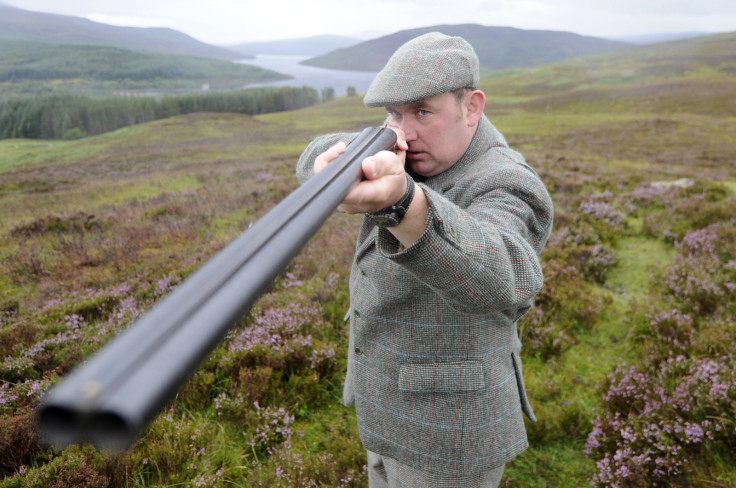Inglorious Twelfth: We have power to stop animals being blasted to bits for deranged amusement
Today marks the start of a dark and bloody period for Britain's wildlife, when our beautiful moorlands will be turned into killing fields. On 12 August, the so-called "Glorious Twelfth", more commonly known as the "Inglorious Twelfth", as has been trending on Twitter, grouse-hunting season opens, and people with too much money and not enough heart will gear up to kill about half a million birds just for the "fun" of it.
Estate owners generally receive £150 for every pair of birds shot down. The birds, of course, receive nothing but pain and suffering. Gun-toting idiots, often with no experience whatsoever, pay their money and take aim. Rather than being killed instantly, thousands of birds will be wounded and left to experience a lingering, painful death.

If there were a group of people preparing to shoot dogs and cats for fun, we'd be screaming bloody murder. It shouldn't be any different for the mass killing of these intelligent, sensitive birds, who have exactly the same capacity to feel pain as dogs and cats do.
It's not just grouse who suffer in the run-up to and during the grouse-hunting season. The British Association for Shooting and Conservation – a contradiction in terms if ever there were one – admits gamekeepers "control" (that is, kill) foxes, crows, weasels, stoats and other animals so hunters will have more grouse to shoot. Similarly, hawks, falcons, owls and other legally protected raptors are killed and have their nests destroyed to remove any competition that the cowardly shooters might have.
In 2014, Allen Lambert, former gamekeeper at the Stody Estate near Holt in Norfolk, was convicted of killing 11 birds of prey in what the Royal Society for the Protection of Birds described as the worst case of bird poisoning ever detected in England. There are also many examples of dogs and cats that were trapped or strangled in snares while exploring local estates. There are even occasions in which they have been shot by trigger-happy keepers.
Gamekeepers take unnatural steps to boost the grouse population for the perverse purpose of obliterating the birds later in the year – a practice highly detrimental to the local environment. Because grouse thrive on young heather, the peat land is burned to encourage a fresh batch, which results in hundreds of thousands of tonnes of carbon dioxide being released into the atmosphere.

The Committee on Climate Change estimates that around 350,000 tonnes of carbon dioxide each year are emitted from peat and the vast majority (260,000 tonnes) results from the burning of grouse moors.
Hunting is destroying Britain's beautiful countryside. The land that used to provide clean drinking water and held back water that would otherwise flood low-lying areas is now contaminated with the lead from hunters' bullets.
And even though evidence indicates this lead harms the environment and humans, concerns about it have largely been overlooked so shooters and estate managers can continue their bloodthirsty ways.
I'll never understand what goes on in the minds of those who breed animals knowing that in a matter of a few weeks, they will be blasted to bits for the deranged amusement of a small minority of people with seemingly no capacity for empathy.
But we – those who oppose gratuitous violence – overwhelmingly outnumber this small, cruel set. We have the power to stop the untold damage that they're doing, and we must. Please take a moment to contact your MP. As Edmund Burke said: "The only thing necessary for the triumph of evil is for good men to do nothing".
Mimi Bekhechi began working for Peta (People for the Ethical Treatment of Animals) in 2007. As Peta UK's director, Bekhechi is responsible for overseeing PETA UK's campaigns and marketing as well as its education and media departments. Bekhechi previously served as the organisation's operations manager and coordinated PETA UK's campaign work in her subsequent role as manager of special projects.
© Copyright IBTimes 2025. All rights reserved.





















